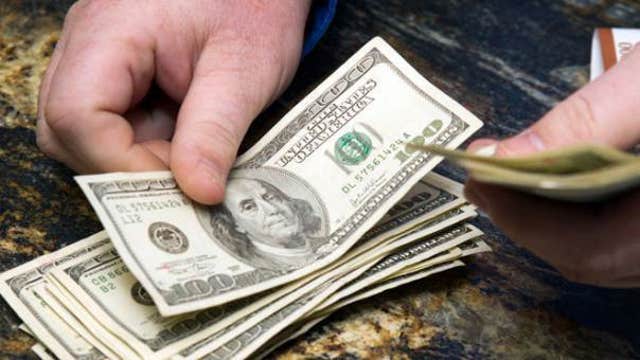Hennessy: CapEx Rebound to Lift Stocks Further
Some stock analysts are calling for a correction on Wall Street this summer that would pull the S&P 500 off record highs. But Neil Hennessy, founder and chief investment officer of the Hennessy Funds, says he doesn’t think a selloff is in the cards.
“It’s not an emotional market,” said Hennessy, who oversees $5 billion in assets under management. “When you go out and get in a cab or Uber, the driver isn’t talking to you about stocks. There’s no euphoria in the stock market.”
Hennessy thinks a shift from high-growth technology stocks into more value-oriented defensive names has cleared the deck of any broader market correction. He said it’ll be three to five years before the market bubbles over and that, right now, investors should buy on any pullbacks.
CapEx to the Rescue
The asset manager thinks spending by businesses is finally poised to pick up in the next year or two. Throughout the economic recovery, companies boosted profits and their stock prices by cutting costs, buying back shares and raising dividends. Meanwhile, productivity and sales increased during the past five years thanks in large part to acquisitions or pouring money into internal infrastructure.
Now Hennessy says companies are at a point where they’ll need to boost sales and earnings by spending on property, plant and equipment. He says he thinks once companies start to expand, it will drive their competitors to expand as well.
“There’s [going] be a lot of CapEx spending in the next 12 to 24 months,” said Hennessy. “You can only buy back stock and raise dividends for so long to keep your stock up. You’re [going] have to expand sales.”
If he’s right, that could be the major missing link to this recovery. A pickup in business spending would lead to more hiring and spending by consumers that would boost the overall economy.
But why now? In the past five years, Hennessy said there was no cost to defer spending. “If your competitors weren’t expanding, why should you? Stockpile your cash, pay down debt, raise your dividend, or buy back your stock and make acquisitions.”
Now, he said, the easy acquisitions have already been made and companies at this point are left to spend their mountains of cash on expanding.
Hennessy’s other rational for a climbing market? Investors have no alternative to U.S. stocks. “When you look at the real world, where else are you [going] put your money?” he said.
“You could buy the ten highest-yielding Dow Jones stocks and get a 3.6% yield or buy a 10-year Treasury with a 2.5% yield. What would you rather have over ten years?”
He said the market is attractively valued based on price in relation to S&P 500 companies’ sales. He prefers to value stocks on sales instead of earnings because he says sales are less prone to manipulation.
Poultry Power
One company he likes is number two U.S. chicken producer Pilgrim’s Pride (NASDAQ:PPC), which recently made a more than $6.7 billion offer for Hillshire Brands (NYSE:HSH), maker of Jimmy Dean sausage and Ball Park hot dogs.
“You could look at Twitter, which is paying $20 for $1 in sales, or you could look at Pilgrim’s Pride,” says Hennessy. “You’re talking about paying 70 cents on the dollar for a dollar in revenue. Here’s a company that produces $2 billion chickens a year. Do we need chickens more than we need Twitter?”
Hennessy, who liked Pilgrim’s before its proposed acquisition, said he thinks Hillshire would be a smart strategic fit for Pilgrim’s because it would introduce a new suite of branded, packaged meats that offer high profit margins. Pilgrim’s, which is 75% owned by Brazilian meat packer JBS SA, is in a bidding war with Tyson Foods (NYSE:TSN) over Hillshire.
JBS recently raised its offer price for Hillshire to $55 per share, or more than $6.7 billion, from $45 per share, or $5.5 billion, after Tyson swooped in with a $50-dollar-a share offer. “Based on the $300 million in annual cost savings in addition to the consistent and immediately accretive earnings, we feel the $55 a share price is reasonable considering what it will add to their product line,” said Hennessy.




















